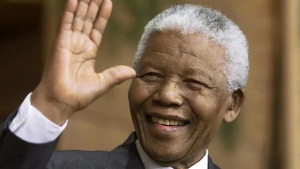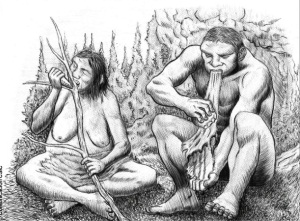
Alistair’s “Random Rambles” (5)
 By Kathy Martin…
By Kathy Martin…
Further rambles written by Alistair for initially the “The KibKom Times” then “The KibKom Forum”
On my return to the UK in 1978, after labouring in a brickyard as a stop-gap job, my first “proper” job was as a customer service officer in a private airline, Dan-Air. After a few years of pay rises that generally were in line with the increases in cost of living, in the mid 80’s we were told that all staff would experience a pay freeze.

Naturally we, and our trade union, objected! The chairman of the board invited the trade union to employ any independent Chartered Accountant/auditor to inspect the company accounts and business plan. The board would meet any fees incurred on this occasion. A few weeks later the recommendation came that we should accept the pay freeze or the airline would be bankrupt in about 6 months. We accepted, but our jobs were secure for many years, the annual pay rises returning after a year. In 1992 Which? Airline named us as the best scheduled service airline within Europe! The “flag” carrier – British Airways couldn’t cope with this competition, so we were bought out! For readers unfamiliar with Which? it is an independent, unbiased organisation that anonymously tests and analyses various products and services available to customers and consumers in the UK.
Some months later I (along with a number of other people who had worked in the commercial world) joined the civil service in a large new department that was partly based in Hastings, my home town. On mingling with the existing civil servants we were somewhat bemused by some of them who wandered about moaning “we are going to be privatised and, therefore, lose our jobs”! It didn’t take long to realise that the complainers were those who did the minimum amount of work and muttered that as they had only taken 12 days sick leave out of the permissible 15, they were going to take the remaining three the next week! Surely it would have made economic sense to “weed” these people out and thus improve the department’s efficiency?

Now, a subject some readers may find controversial and contrary to general worldwide public opinion. The subject is Nelson Mandela – a “great man”! As the saying goes ….” Some people are born great, some achieve greatness and some have greatness thrust upon them”………… Nelson Mandela definitely fell into the latter category.
I have no intention of demeaning the achievements that he, along with the politicians in the first black majority government in South Africa made, but the fact that he was a terrorist appears to have been “airbrushed” out of both his personal life and public opinion! He was charged with, and convicted of (among other charges) recruiting and training people in explosives and violent acts of sabotage. This was the reason that he was justly and justifiably imprisoned by the South African authorities. Every country (no matter how distasteful its government’s internal policies may be) is entitled to punish violent criminals.
Nelson Mandela belonged to the African National Congress (ANC), which had two “wings”.
- One was the political wing, which advocated change through negotiation and peaceful means.
- The other was the military wing, which advocated change through violence and terrorism.
He chose, of his own free will, to join the military wing. As the South African security forces were so strong and efficient, terrorism became a non-viable option and it was the political wing of the ANC that successfully brought about the downfall of apartheid!
So, Nelson Mandela, a violent man in his early years, and a person who did nothing practical by sitting in prison, gained the kudos that were rightfully due to the non-violent peaceful negotiators of the ANC, who actually brought about the downfall of apartheid!
How and why did he become an icon to the anti-apartheid groups? Ponder on this and try to come up with a sensible answer, because I can’t!

I can only fall back on the premise that we cannot be logical in this world where we talk of sunrise when it is, in fact, earthset!
While on the subject of apartheid, where were the anti-apartheid protestors and the condemnation by that really, really effective organisation, the United Nations, when, at the same time as Mandela’s arrest, America’s “deep south” was applying the same policy towards its black population? The Ku Klux Klan was (literally) running riot in states like Alabama, Georgia and Mississippi. They (who were white Americans) burnt the homes and churches of, and beat and murdered those people who had the misfortune of being born with a black skin!
After my ramble on Nelson Mandela was published one of my younger readers asked me to explain the apartheid policy. In a nutshell, apartheid is another word for segregation. The word itself is a combination of two Dutch words – apart and heid – literally separatehood, or colloquially, separateness. There, apartheid has been explained!
To put some “meat on the bones”, an analysis of the social and political history of South Africa is needed. With its colonies and trading posts in the Dutch East Indies, the Dutch East India Company needed a staging post for both men and ships journeying between Europe and the colonies. So, in 1652 a complete cross-section of society ranging from labourers to doctors and (of course!) lawyers and administrators were sent to Cape Town to establish a safe haven there.

The original native African inhabitants of the area were not “noble savages” accustomed to gold, jewels and fine silks, but were illiterate and unsophisticated hunter-gatherers and subsistence farmers. As such, neither the kraal (village) nor even the tribal chiefs had any place in Dutch society. Some of the Dutch preachers became missionaries and tried to teach the “three R’s”, but little else was done to educate the masses and bring them into “civilized” society.
However, because there were so many native Hottentots (as the tribe was called), labour was cheap and plentiful. Every Dutchman (later to be known as an Afrikaner), even the poorest in both financial and intelligence terms, could afford, at least, one houseboy and garden boy.
Here is where the basis of apartheid (which lasted for some 400 years) started. As the natives were uneducated and unsophisticated, the upper crust of Dutch society had nothing in common with them, apart from their usefulness as servants. Neither did the lower levels of Dutch society have any interest in bettering the lot of the natives. This was for two reasons, firstly with a supply of cheap labour the Dutchman was able to lead a lifestyle far higher than that he would have in his native Holland. Secondly, and probably more importantly, if a native’s education, sophistication and skills improved he may be able to compete with, and beat the Dutchman in the world of employment!
Far better for the Dutchman/Afrikaner to hold the high ground, even if the only reason was that no-one was in a position to challenge him!
Nevertheless, usually the lot of an African who, (especially in the earlier years of colonisation) was in employment was better than one who remained on the land scratching a living from farming.











